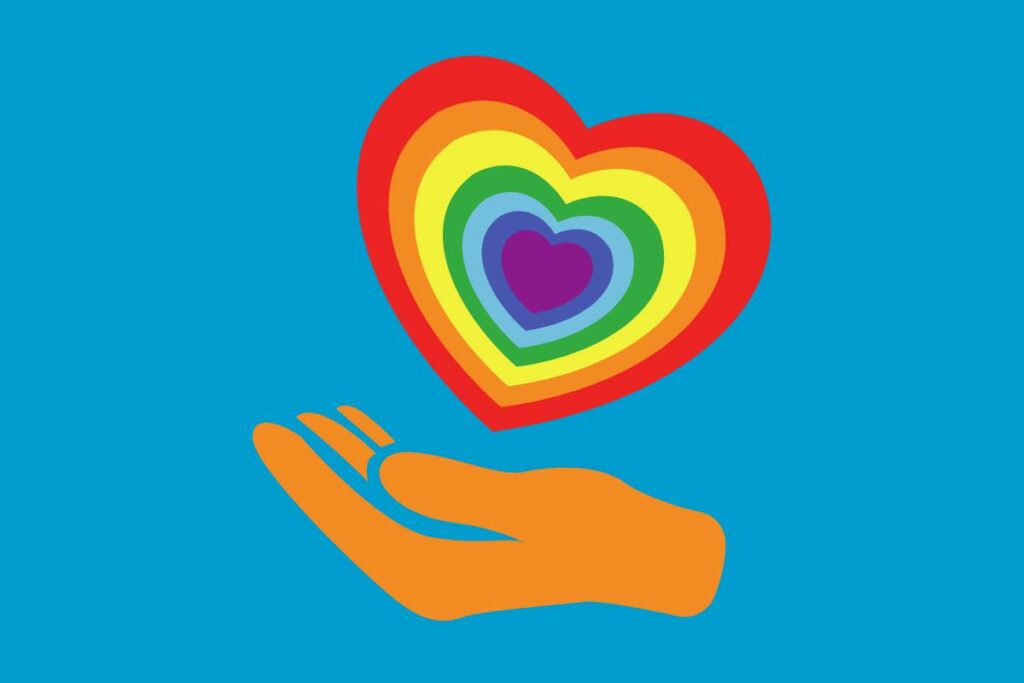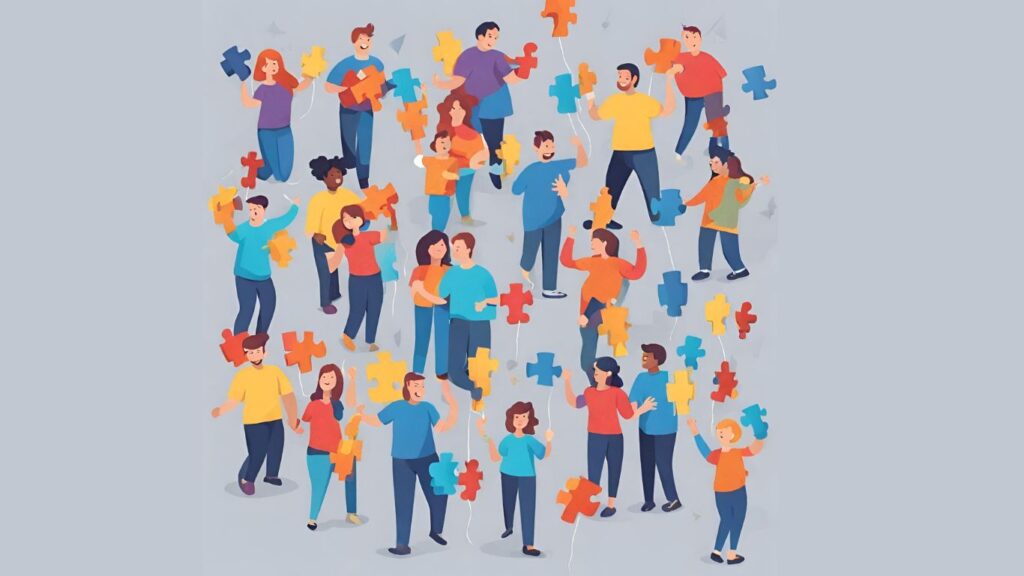There are some common misconceptions and myths about autism that persist in society. It’s important to address these to build greater understanding.
First, autism is not an illness or disease. It is a developmental disability that affects how people communicate, interact, behave, and learn. Autism is a neurodevelopmental condition that people are born with and that lasts throughout life.
Second, autism is not caused by parenting or factors that parents control. Decades of scientific research have shown that autism is largely genetic, though environmental factors may also play a role. Autism occurs in children of all backgrounds and parenting styles.
Finally, autism exists on a spectrum. No two people with autism are exactly alike. Some autistic people may need significant support with daily living, while others can live independently. The types of challenges faced can vary greatly from person to person. The autism spectrum encompasses a wide range of abilities, skills, and disability levels.
Living with Autism
Autism is a complex condition that affects each person differently. However, many autistic individuals share certain traits and challenges in day-to-day living.
Sensory Sensitivities
People with autism often have heightened or altered senses. They may be overly sensitive to sounds, lights, smells, textures, and other stimuli. Something as subtle as a humming lightbulb or clothing tag can feel agonizing. Many autistics cover their ears or wear noise-blocking headphones to cope with overwhelming noise. Others seek deep pressure to feel grounded. Simple sensations most people filter out can bombard the autistic brain.
Communication Differences
Autistic people frequently have differences in verbal and nonverbal communication. Some may be nonverbal or have limited speech. Others are highly articulate but still struggle with back-and-forth conversation. Autistics often have monotone voices and avoid eye contact. They may not pick up on social cues, sarcasm, or body language. Many autistics take statements literally and have trouble understanding figurative language. Communicating and socializing can be confusing and anxiety-provoking.
Repetitive Behaviors
Autistic individuals frequently engage in repetitive motions like rocking, pacing, spinning, or hand-flapping. These “stimming” behaviors provide sensory input and help self-regulate emotions. Many autistics also thrive on sameness and routine. They may repeatedly watch the same shows, eat the same foods, or follow rigid daily schedules. Some develop restrictive special interests they focus intensely on. Repetitive behaviors and interests provide comfort and predictability for the autistic mind. They serve an important function rather than being mindless habits.
Strengths of Autism
Many autistic individuals have strengths and abilities that provide value to society. Some commonly cited strengths include:
Attention to Detail
Autistic people often notice details that others miss. They may have strong observational skills and be able to spot patterns, discrepancies, or minute changes that neurotypical people glance over. This skill is highly valued in fields like science, investigation, quality assurance, and analytics.
Honesty and Loyalty
Autistic individuals tend to be very honest and loyal. They are unlikely to lie, cheat, or betray others. Their blunt truthfulness can be refreshing to neurotypical people, even if unintentionally hurtful at times. Autistic people also tend to have a strong moral compass and sense of fairness.
Special Interests and Abilities
Many autistic people have intense interests they pursue with passion. These special interests can lead to impressive skills and talents. Some examples include mathematical wizardry, extensive knowledge of niche topics, artistic brilliance, or musical virtuosity. Autistic people with savant abilities in areas like art, memory, calculation, or music demonstrate the incredible potential of the autistic mind.
Leveraging the strengths of autistic individuals allows them to thrive and provides valuable contributions to society. While autism comes with challenges, focusing on abilities not disabilities helps create a more inclusive world.
Challenges of Autism
Autism often presents some key challenges for those with the condition and their families and caregivers, specifically regarding social and communication skills, sensory processing, and managing emotions. However, it’s crucial to understand that while people with autism struggle in these areas, that does not mean they are incapable or incompetent. With the right support, people with autism can overcome and manage many of these challenges.
Social and Communication Difficulties
- Impaired social skills and social interactions
- Difficulty interpreting nonverbal cues like facial expressions and body language
- Trouble making and maintaining friendships
- Challenges with back-and-forth conversation and reciprocity
- Tendency to have specialized interests and not enjoy small talk
- May avoid eye contact or have atypical eye contact
- Can be reluctant to engage socially or seem aloof
- Often have literal interpretations and trouble understanding sarcasm
Sensory Processing Differences
- Sensory sensitivity – bothered by noises, lights, textures, smells, tastes
- Seeking sensory stimulation – enjoys deep pressure, spinning, loud music
- Sensorimotor issues – problems with coordination, balance, clumsiness
- Distracted by background stimuli other people can tune out
- May seem overstimulated and have sensory “meltdowns”
Anxiety and Emotional Regulation
- High anxiety in social settings and unfamiliar situations
- Emotional regulation challenges – prone to emotional outbursts
- Difficulty recognizing and expressing own feelings appropriately
- Can become overwhelmed and have “meltdowns” when anxious
- Obsessive interests may be a way of coping with anxiety
- Some individuals also have gastrointestinal issues associated with anxiety
The key is acknowledging these challenges while recognizing they do not define a person with autism or dictate their potential. With compassion, support, and inclusion, those with autism can find ways to manage difficulties and live full, enriching lives.
Support and Accommodations
Autism affects each person differently. While some autistic individuals may need only limited support, others benefit greatly from more comprehensive services and accommodations. Key supports often include:
Early Intervention
Early intervention services for young children with autism can make a significant difference in their development. Services may include speech and occupational therapy, educational programs, and family training. Detecting and addressing autism early on equips children with essential skills.
Speech and Occupational Therapy
Many autistic people find speech and occupational therapy helpful. Speech therapy aids communication skills, while occupational therapy develops practical abilities for daily living. These therapies teach strategies for social interactions, behavior management, and dealing with sensory issues.
Educational Supports
Classroom accommodations allow autistic students to learn effectively alongside their peers. Some helpful supports include quiet spaces, alternate seating, modified assignments, and access to aides or specialists. Understanding teachers also makes a big difference by providing structure, social coaching, and positive reinforcement.
Workplace Accommodations
Adjustments in the workplace enable autistic adults to succeed at their jobs. Flexible schedules, noise-reducing headphones, written instructions, and break rooms are examples of reasonable accommodations. Mentoring programs and clear expectations additionally empower autistic employees. With the right support, they make valuable contributions.
The key is providing autistic individuals with the tools they need to thrive. Accommodations help them develop skills for school, jobs, and everyday life.
Is Autism an Excuse?
Autism is a complex neurodevelopmental condition that affects how a person communicates, interacts, behaves, and learns. While autism certainly explains some behaviors, it does not excuse every action or absolve someone of personal responsibility.
The support needs of autistic individuals vary greatly from person to person. Some may need substantial assistance in daily living, while others can live independently with minimal support. However, the majority of autistic adults and children have the desire and capacity to positively contribute to their families, friendships, schools, workplaces, and communities in meaningful ways.
Though autism involves lifelong challenges, most autistic people want to use their strengths and abilities to benefit others. With the appropriate accommodations and support systems in place, they can thrive and add value through their unique perspectives. Viewing autism as an excuse limits the potential and agency of autistic people.
The autism community rejects the idea of using their neurological difference as a free pass for misconduct or harmful behaviors. They advocate for judging each person’s actions individually, not excusing injustice because of a disability. Autism explains certain communication and social challenges that may require more patience and understanding from others. However, it does not exempt anyone from being accountable for their conduct or from making an effort to improve themselves.
Autistic Perspectives
The neurodiversity movement emphasizes that autism is a natural part of human diversity, not something to be cured or eliminated. Many autistic self-advocates and activists have spoken out about their experiences and perspectives.
“Autism isn’t something a person has, or a ‘shell’ that a person is trapped inside. There’s no normal child hidden behind the autism. Autism is a way of being. It is pervasive; it colors every experience, every sensation, perception, thought, emotion, and encounter, every aspect of existence. It is not possible to separate the autism from the person–and if it were possible, that person would not be the same person you started with.” – Jim Sinclair, autistic advocate
“I am not suffering from autism; I am suffering from your misunderstanding of autism.” – Mel Baggs, autistic advocate
“Too often, autistic people are assumed to be inherently unhappy with themselves, when the lack of acceptance from family and society are greater sources of pain.” – Julia Bascom, autistic writer and activist
Many autistic advocates argue against the idea that autism is an “excuse” for anything. They point out that autism is an integral part of their identity, not something separate. Accommodations and understanding should be provided not as a special favor, but as a basic matter of human rights and inclusion. The social and medical models of disability have important distinctions in this regard. Overall, the autistic community itself contains diverse perspectives on many issues related to autism.
Looking Forward
The autism community has come a long way, but there is still progress to be made. With increased understanding and acceptance from society, those with autism can thrive and live fulfilling lives. Focusing on their strengths and talents allows autistic individuals to flourish.
New research continues to uncover effective strategies to support those with autism throughout their lives. Early intervention, behavioral therapies, social skills training, alternative communication methods, and vocational programs can all help people on the spectrum reach their full potential. Scientists are also making advances in detecting autism earlier and developing new treatments.
Technology holds promise for creating tools and environments better suited for those with sensory sensitivities or communication challenges. Workplaces are learning how small accommodations allow autistic employees to excel at tasks that utilize their capabilities.
While the future is bright, we still have work ahead to foster inclusive communities. With compassion and an open mind, we can build a society where neurological differences are respected. Focusing on abilities, not limitations, benefits everyone.
Summary
Autism is a complex neurodevelopmental condition that impacts how people communicate, interact, behave, and learn. Key points discussed in this article include:
- Autism is a spectrum, meaning its characteristics and severity vary from person to person. There are strengths as well as challenges.
- Common misconceptions about autism persist, like that autistic people lack empathy or don’t want relationships. In reality, autistic people have empathy and desire connection but may express it differently.
- Living with autism means navigating a world not built with autistic people in mind. It requires learning coping strategies, self-advocacy, and seeking accommodations.
- Autistic people have diverse skills and talents to offer. Many excel in fields like math, science, arts, and technology thanks to characteristics like pattern recognition, focus, and visual thinking.
- There are also challenges like sensory sensitivity, communication differences, executive functioning difficulties, and managing change and uncertainty. Support can help autistic individuals manage these hurdles.
- Accommodations in school, work, and daily living empower autistic people to thrive. From quiet workspaces to clear communication, small changes remove barriers.
- Autism explains why someone thinks, behaves, or experiences the world differently. It’s not an excuse for harmful or inappropriate behavior. Autistic people appreciate compassion and support.
- With the right understanding and accommodations, autistic individuals enrich our communities with their talents, insights, passion, and diversity. Focusing on strengths and support benefits everyone.







